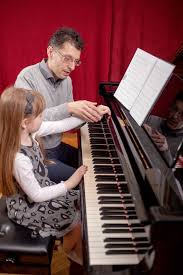Learning to play the piano is a rewarding journey that traditionally involves structured lessons and a lot of practice. However, not everyone thrives under conventional teaching methods. For those looking to explore different avenues, alternative piano lessons offer a refreshing approach. These unique methods cater to diverse learning styles, making piano education accessible and enjoyable for all. In this article, we will delve into several alternative piano learning methods that are gaining popularity among aspiring pianists.
1. Online Piano Courses
H2: Convenience and Flexibility
Online piano courses have revolutionized the way people learn music. With the advent of the internet, high-quality piano lessons are just a click away. Websites like Udemy, Coursera, and Flowkey offer comprehensive courses that cover everything from basic techniques to advanced music theory. These platforms provide the flexibility to learn at your own pace, making them ideal for busy individuals or those who prefer a self-guided approach.
H2: Interactive Learning
Many online courses include interactive features such as virtual keyboards, instant feedback, and progress tracking. These tools help learners stay engaged and monitor their improvement over time. Additionally, video tutorials allow students to rewind and replay lessons, ensuring they fully grasp each concept before moving on.
2. Mobile Apps
H2: Learning on the Go
For those who are constantly on the move, mobile apps like Simply Piano, Yousician, and Piano Academy offer a convenient solution. These apps transform your smartphone or tablet into a portable piano teacher. They provide step-by-step instructions, practice exercises, and even fun games to keep learners motivated.
H2: Real-Time Feedback
One of the standout features of these apps is real-time feedback. By listening to your playing through the device’s microphone, the app can provide immediate corrections, helping you improve your technique and timing. This instant feedback loop is incredibly beneficial for beginners who need constant guidance.
3. Group Lessons
H2: Social Learning Environment
Group lessons offer a social alternative to one-on-one instruction. Learning in a group setting can be incredibly motivating and fun. It allows students to interact with peers, share experiences, and learn from each other’s mistakes and successes. Group dynamics often foster a supportive environment where everyone encourages each other to improve.
H2: Collaborative Performances
Group lessons also provide opportunities for collaborative performances. Playing in an ensemble helps students develop important skills such as timing, listening, and coordination. It also adds an element of excitement and accountability, as students prepare to perform in front of an audience.
4. Improvisation and Creativity-Based Lessons
H2: Breaking Away from Tradition
Improvisation and creativity-based lessons focus on developing a student’s musical intuition rather than following a strict curriculum. Teachers who specialize in this method encourage students to explore the piano freely, experiment with different sounds, and create their own compositions. This approach can be particularly appealing to those who feel constrained by traditional lessons.
H2: Building Confidence and Expression
By emphasizing creativity, these lessons help students build confidence in their playing. They learn to express themselves through music, making their practice sessions more enjoyable and fulfilling. This method nurtures a deeper connection with the instrument and can lead to a lifelong love of music.
5. Technology-Enhanced Learning
H2: Using Digital Keyboards and Software
Modern technology has introduced new tools that enhance the learning experience. Digital keyboards with built-in learning modes, software programs like GarageBand, and MIDI keyboards connected to educational software offer interactive ways to learn piano. These tools often include features such as chord recognition, composition aids, and virtual band accompaniment.
H2: Virtual Reality (VR) Piano Lessons
Virtual reality is the latest innovation in piano education. VR piano lessons immerse students in a 3D environment where they can interact with a virtual piano and receive instructions from a virtual teacher. This cutting-edge technology provides an engaging and immersive learning experience that can make practicing more enjoyable.
Conclusion
Exploring alternative piano lessons opens up a world of possibilities for aspiring pianists. Whether you prefer the flexibility of online courses, the convenience of mobile apps, the camaraderie of group lessons, the freedom of improvisation, or the excitement of technology-enhanced learning, there is an alternative method to suit your needs. These unique approaches not only make learning the piano more accessible but also more enjoyable. So, if traditional lessons haven’t worked for you, consider trying one of these alternative methods and discover a new way to master the piano.

